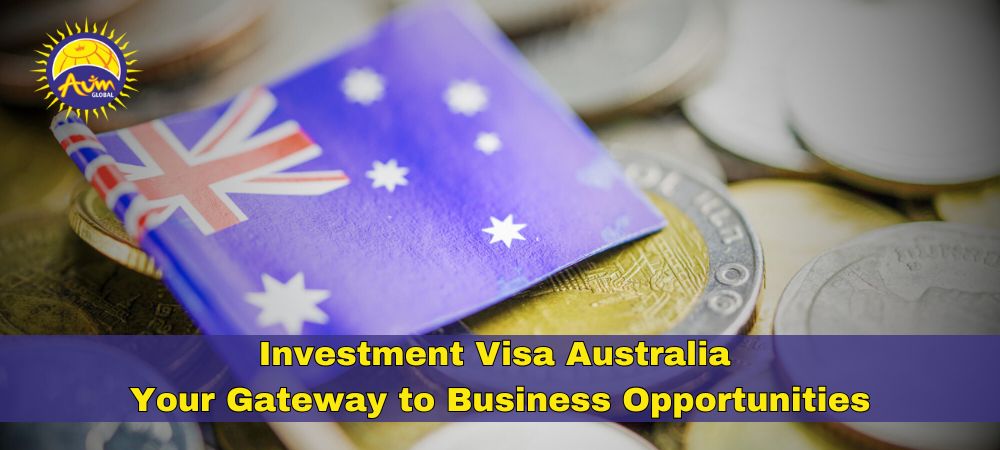
Australia is known for its strong economy, business-friendly policies, and high quality of life, making it an attractive destination for investors and entrepreneurs. If you are looking to expand your business or make significant investments, the Australian Investment Visa is your gateway to success. This visa category allows business professionals and high-net-worth individuals to establish and grow their businesses while potentially gaining permanent residency. In this guide, we will cover everything you need to know about the Investment Visa in Australia, including its types, eligibility criteria, benefits, and the application process.
An Investment Visa allows foreign nationals to invest in Australian businesses, contribute to the economy, and, in some cases, obtain permanent residency. This visa falls under the Business Innovation and Investment Program (BIIP) and is mainly designed for business owners, entrepreneurs, and investors who want to operate and invest in Australia.
The main types of Australian Investment Visas include:
Business Innovation and Investment Visa (Subclass 188)
Investor Visa (Subclass 891)
Significant Investor Visa (SIV) (Subclass 188/888)
Premium Investor Visa (PIV) (Subclass 188/888)
Each visa has its own eligibility requirements, investment amounts, and pathways to permanent residency.
This is a temporary visa that allows eligible business owners and investors to establish or develop a business in Australia. It has multiple streams:
Business Innovation Stream: For business owners who wish to establish a new or existing business in Australia.
Investor Stream: Requires a minimum investment of AUD 2.5 million in designated investments.
Significant Investor Stream: Requires an investment of AUD 5 million in complying investments.
Entrepreneur Stream: For individuals with an innovative business idea who have secured AUD 200,000 in funding.
This visa is valid for up to 5 years, and successful applicants can apply for a permanent residency (Subclass 888) after meeting the investment and business requirements.
This is a permanent visa for individuals who have held a Subclass 162 (Investor Visa) and invested at least AUD 1.5 million in Australia for at least four years. Applicants must have lived in Australia for at least two years before applying.
This visa is designed for individuals who are willing to invest at least AUD 5 million in complying investments. The permanent residency pathway (Subclass 888) is available after four years if investment conditions are met.
For ultra-high-net-worth individuals investing AUD 15 million in Australia, this visa provides a fast-track pathway to permanent residency.
Pathway to Permanent Residency: Many investment visas offer a direct path to permanent residency and eventually Australian citizenship.
Access to Business Opportunities: Visa holders can establish and operate businesses in a stable and thriving economy.
Quality of Life: Australia offers world-class healthcare, education, and infrastructure.
Global Business Expansion: Investors can leverage Australia's trade agreements and economic growth.
Family Inclusion: Many investment visas allow applicants to include their family members.
Government Support for Entrepreneurs: Many Australian states and territories actively support business migrants through funding and networking opportunities.
Diverse Investment Options: Investors can choose from a variety of industries, including technology, real estate, finance, and manufacturing.
While each visa subclass has specific requirements, common eligibility criteria include:
Minimum investment amounts (varies by visa type)
Genuine intention to maintain investment in Australia
Business experience or investment background
Age restrictions (usually under 55, with some exceptions)
Meeting health and character requirements
Complying with Australian tax regulations
Submit an Expression of Interest (EOI) through the SkillSelect system, indicating your preferred visa subclass and state/territory sponsorship (if applicable).
Some visa subclasses require a nomination from an Australian state or territory government.
Once nominated and invited, submit your visa application online through the Department of Home Affairs.
Make the required investment or establish your business as per the visa conditions.
If all conditions are met, your visa will be granted, allowing you to live and operate in Australia.
Ensure you have clear financial records and a well-planned investment strategy.
Seek professional advice to ensure your investments align with government regulations.
Applying through the best migration agent can help streamline the process and improve approval chances.
Ensure your business maintains the necessary turnover and operational requirements to qualify for permanent residency.
Processing times vary, but it can take 12-24 months depending on the visa subclass.
Yes, most investment visas offer a pathway to permanent residency after meeting investment and residency requirements.
Generally, applicants should be under 55 years, but some exceptions apply based on state sponsorship.
Yes, most investment visas require proof of business ownership or investment experience.
If Australia’s investment visa requirements are too high, you can explore other best affordable countries to live in, such as Portugal, Thailand, or Malaysia.
Yes, most investment visas allow you to include your spouse and dependent children in the application.
Australia’s Investment Visa is an excellent opportunity for business professionals and investors looking to establish themselves in a thriving economy. With various visa options, a strong business environment, and a pathway to permanent residency, this program is a valuable choice for those seeking long-term growth and stability.
To increase your chances of a successful application, seek guidance from AUM Global the best migration agent in Australia, plan your investments wisely, and ensure compliance with all regulations. Investing in Australia not only secures your financial future but also opens doors to a high-quality lifestyle and global business opportunities.
